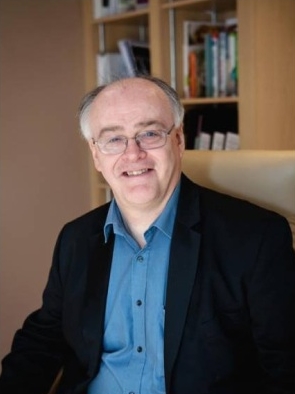Seeking Justice
As part of Lent (the Christian run up to Easter) a number of people are focussing on the issue of seeking justice. Justice tends to be inexplicably linked to the issue of fairness. But what is fairness? That was firmly brought home to me some years ago when I heard someone say: “Is it fair to eat a beefburger? If you are desperate for food you will think it is very fair, but if you are the animal who has to give up its life for you to eat, then it is very unfair”.
Now the person in question wasn’t trying to be smart or clever but was making the point that quite often the idea of what is just or fair can depend on your individual perspective or point of view. One person’s freedom fighter can be another’s terrorist for example.
That said, we all know that there are things in this world which are without doubt clearly an injustice or unfair. The genocides of the Holocaust, those carried out in Cambodia, in Rwanda, under Stalin and going on now as we speak, of the Rohingya people in Myanmar (Burma) are unjust to anyone’s view, and no matter what reparations are made, they are crimes against humanity and God.
Closer to home there are innumerable personal injustices that people have had to endure. I think of the families of Jonathan Ball (aged 3) and Tim Parry (aged 12) who were killed in the Warrington IRA bombings in 1993 and to this day no individuals have been brought to justice for their deaths. I think also of Marie and William McCourt whose daughter Helen was murdered 32 years ago. Her killer was recently released from prison but to this day he refuses to say where he hid her body, thus preventing any real closure or burial by her family.
These are just dreadful stories, and I don’t think anyone can imagine the nightmare that these families have had to live through where no sense of justice has prevailed and in all likelihood may never happen in this world.
So how do we cope with these kind of global and personal tragedies where injustice haunts your being? I think there are two things that can help to sustain us.
The first is a recognition that whilst we desperately want to right a wrong it is ultimately down to God to judge people (Hebrews 10:30) and that in time He will do that, and we cannot act as an avenger no matter how justified we feel. We should not act as if we are Charles Bronson or Liam Neeson in a Death Wish or Taken film. Be assured that in the end all wrongs will be righted.
The second is probably the greatest blessing we have which is Forgiveness. As horribly difficult as it is, the reality is that we are called to forgive, and justice is not a requirement in order to forgive someone. Jesus’ command is clear. When Peter asked him: “Lord, if my brother keeps on sinning against me, how many times do I have to forgive him? Seven times?”, Jesus replies “No, not seven times, but seventy times seven” (Matthew 18:21-22).
However, forgiveness is amongst the hardest acts you can perform- quite often it is the very last thing you want to do in case it somehow reduces the severity of someone’s or something’s actions against you or others. However, I don’t think you can truly heal unless you forgive. As the old proverb goes: "the person who seeks revenge should dig two graves".
Sometimes however, the offence in question is so grave that you feel you just cannot come to forgive someone for what they have done. If that is you, I would say that what can help is to do two things. First, forgive yourself for not being to forgive and second, pray for that other person-as praying for them can come easier than to forgive them.
At other times genuine good can come out of an awful tragedy. Again, I think of the death of those boys Jonathan Ball and Tim Parry. Two of the parents (Colin and Wendy) wanted to understand why
their boys died and went to visit people in Northern Ireland as well as the Republic of Ireland to find out how people were trying to work for peace there. As a result, they set up a charity (‘Tim Parry Jonathan Ball Peace Foundation’) and eventually a Peace Centre to assist and help victims of terrorism and they now “campaign for peace knowing that sadly conflict is inevitable but violent conflict is not.”
Good will always overcome evil.
Tags: Forgiveness, Iraq War, Justice, ForgivenessFairness, Fairness, Holcaust, IRA, Jonathan Ball, Tim Parry, Acts of kindness


